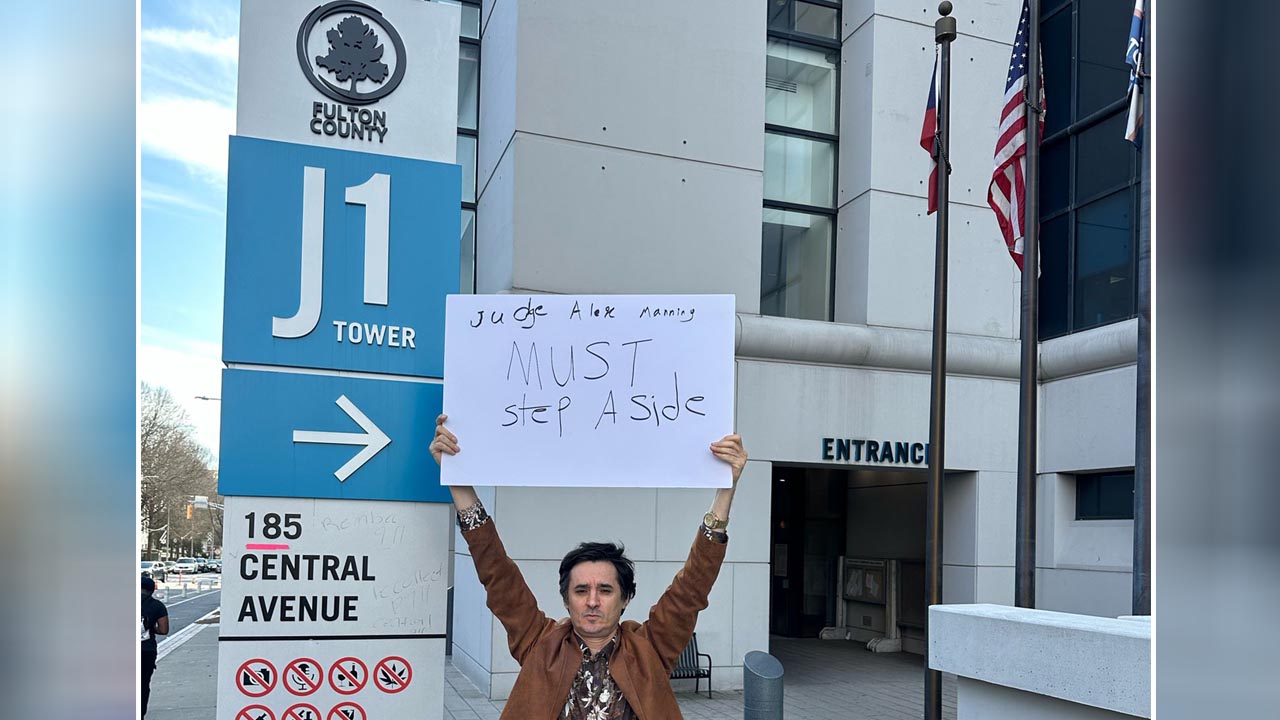
Federal Court Warns Georgia Judge Manning as Pro Se Plaintiff Presses Forward in Civil Rights Lawsuit
ATLANTA, GA — In a rare and significant case, plaintiff Fazail Azizan is advancing a federal civil rights lawsuit against Fulton County Superior Court Judge Alexandra Manning and attorney Samuel Saeid Johnson, alleging serious constitutional violations and abuse of judicial power.
Filed in the United States District Court for the Northern District of Georgia, the lawsuit has already triggered strong judicial scrutiny. In a recent order issued on April 15, 2025, U.S. District Judge Michael L. Brown warned that the case was “in danger of going off the rails,” citing defense counsel’s sloppy handling of the litigation and procedural failures, including those committed by Judge Manning herself.
The Court denied several motions filed by the defendants and ordered Judge Manning personally to properly refile and correctly serve any renewed motion within strict deadlines—warning that failure to comply would cause the case against her to proceed into full discovery.
“This case is in danger of going off the rails. Plaintiff is pro se, defence counsel have been sloppy, and the docket is clogged with unnecessary and overly aggressive filings,” the federal judge wrote.
Mr. Azizan, representing himself without an attorney, has framed the stakes of the case as more than a personal grievance — presenting it as part of a broader constitutional struggle over accountability and the rule of law. In his opening legal brief opposing dismissal, Azizan invoked the words of President Abraham Lincoln, stating:
“I consider the central idea pervading this struggle is the necessity that is upon us, of proving that popular government is not an absurdity. We must settle this question now, whether in a free government the minority have the right to break up the government whenever they choose. If we fail it will go far to prove the incapability of the people to govern themselves.”
— Abraham Lincoln, quoted in Team of Rivals: The Political Genius of Abraham Lincoln.
Azizan wrote that while his case is “not a civil war,” it nonetheless raises a vital constitutional question:
whether ordinary citizens can hold powerful officials accountable under law, peacefully and through the courts, as the Founders of the Republic envisioned.
The federal court’s recent order leaves Manning and Johnson with only 14 days to correct their filings or risk full discovery — a phase that could expose significant additional evidence through depositions and subpoenas.
The lawsuit, titled Azizan v. Manning, et al., Case No. 1:25-cv-1112-MLB, remains pending. Discovery is currently stayed pending any renewed dispositive motions. However, the Court made clear that if procedural obligations are not strictly met, the stay will be lifted, and the case will move forward.
Mr. Azizan’s efforts unfold against a backdrop of growing national attention to judicial accountability. In recent weeks, two sitting state judges in Milwaukee and New Mexico were arrested by federal authorities in unrelated cases — signaling a shifting climate where public officials, including members of the judiciary, are facing heightened scrutiny for misconduct.
Through persistent legal action, Azizan seeks to prove that in a government of laws, no office is above accountability, and that citizens retain the right — and the duty — to challenge official overreach through the constitutional process.
The public docket and court orders related to the case are available through the U.S. District Court for the Northern District of Georgia.
Fazail Azizan
25 April 2025
